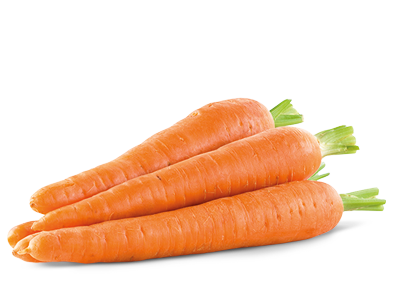


Nutrition facts
Carrots’ water content ranges from 86–95%, and the edible portion consists of around 10% carbs
Carrots contain very little fat and protein
The nutrition facts for two small-to-medium raw carrots (100 grams) are:
- Calories: 41
- Water: 88%
- Protein: 0.9 grams
- Carbs: 9.6 grams
- Sugar: 4.7 grams
- Fiber: 2.8 grams
- Fat: 0.2 grams
Vitamins and mineralsCarrots are a good source of several vitamins and minerals, especially biotin, potassium, and vitamins A (from beta carotene), K1 (phylloquinone), and B6.
- Vitamin A: Carrots are rich in beta carotene, which your body converts into vitamin A. This nutrient promotes good vision and is important for growth, development, and immune function.
- Biotin: A B vitamin formerly known as vitamin H, biotin plays an important role in fat and protein metabolism.
- Vitamin K1: Also known as phylloquinone, vitamin K1 is important for blood coagulation and can promote bone health.
- Potassium: An essential mineral, potassium is important for blood pressure control.
- Vitamin B6: A group of related vitamins, B6 is involved in the conversion of food into energy.
